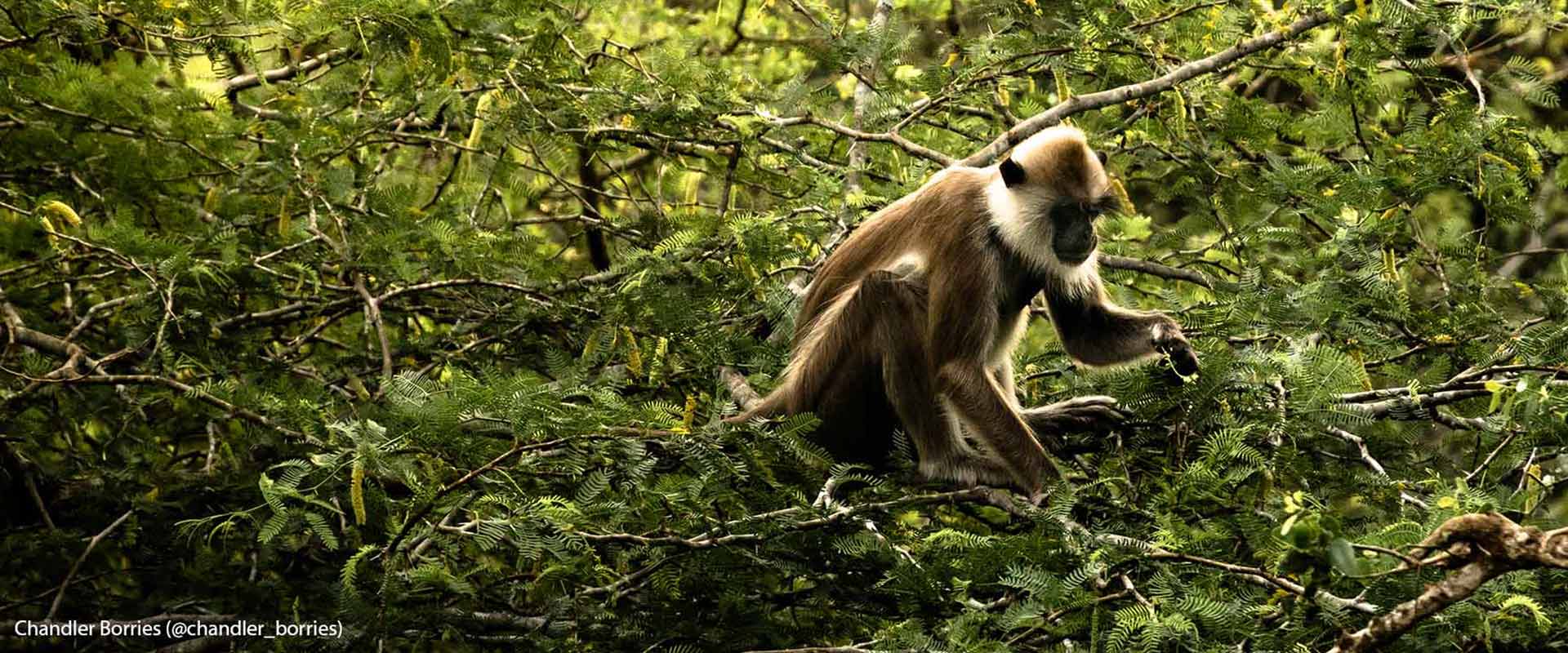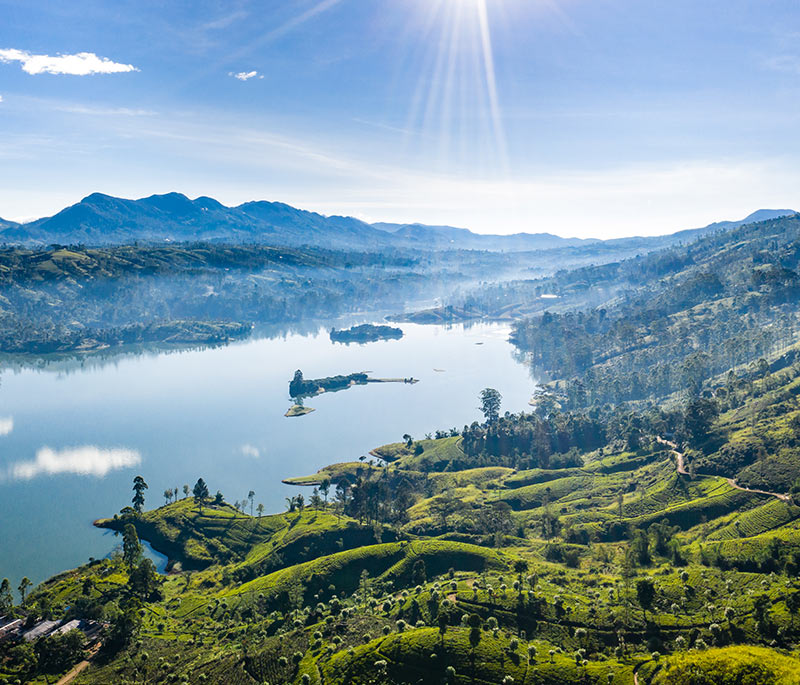Monkeying Around: Introduction to the Primates of Yala
There’s more to primates than what usually meets the eye! Ranger Grace from Wild Coast Tented Lodge loves primates; in her 2-part blog, she will discuss primate behaviour at Yala, Sri Lanka. Here’s her account of a cheeky primate called the Toque Macaque.
Hello! I am Grace, a safari guide working at Wild Coast Tented Lodge, a luxury tented camp situated on an unfenced border of Yala National Park, Sri Lanka. I am from England but have been here for about 7 months gaining extensive knowledge and experience through my guiding work. If you meet me, you will soon understand that my primary passion is to learn about primates… To be honest, I’m primate mad! Working in Yala is truly amazing as you get to be exceptionally close to these human-like creatures and learn all about their weird and wonderful habits.
Sri Lanka is one of the best places to observe primates as you can see many incredible and unique species, even though it is a small island. The special thing about these primates is that most of them are endemic. This means they aren’t found anywhere else in the world other than Sri Lanka. One of my personal favourites is the cheeky Toque Macaque. With their bright red faces and funny bowl hair-cuts, these charismatic monkeys are sure to bring a smile to your face.
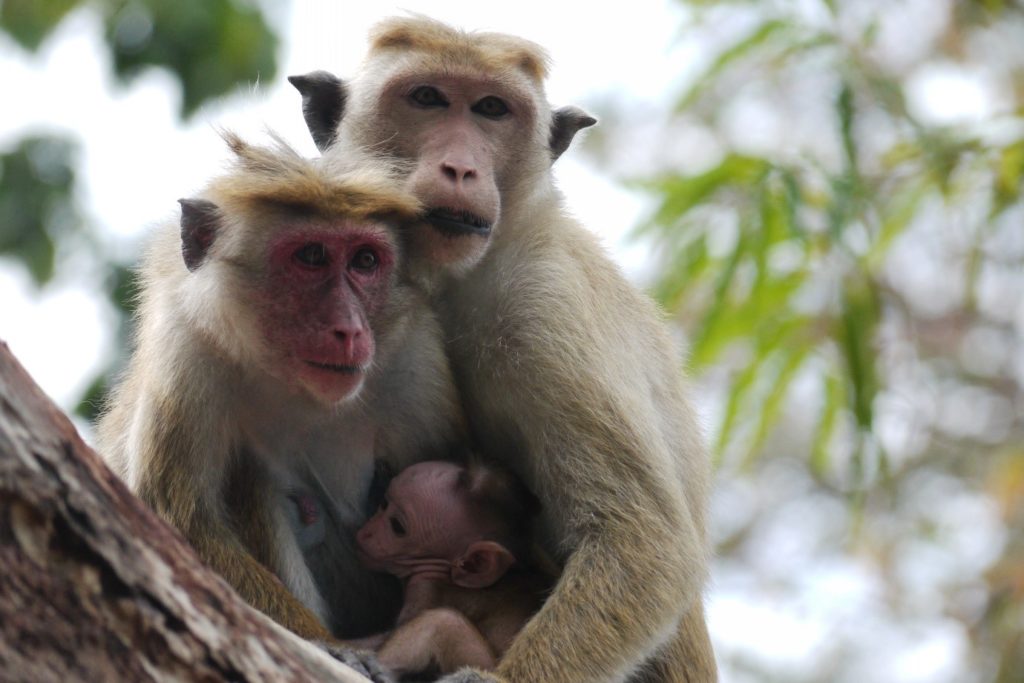
As you can see in this family portrait, the mother looks very different to the father. Females are smaller with a bright red face whereas the males are larger with a paler face. Another distinction can be seen in the image below. As the picture was being taken, this male gave us a big yawn showing off his impressive canine teeth. Female canines are much smaller in size, being more comparable to a human’s canine teeth.
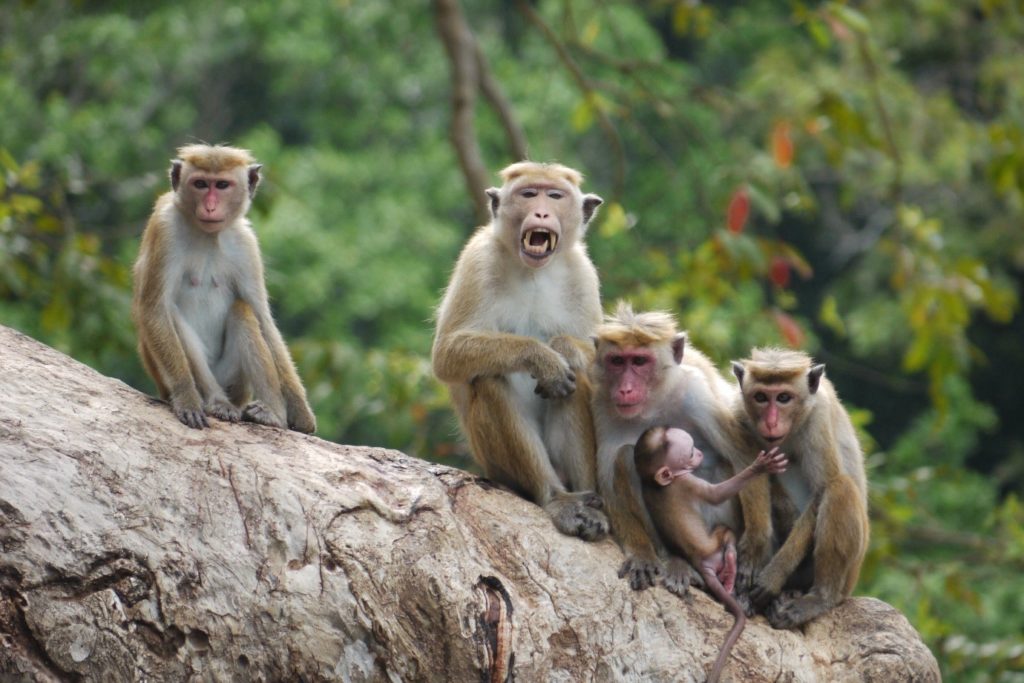
Macaques are excellent parents, with the mothers investing greatly in their children. In order to learn how to become a good mother in the future, young females will take turns in parenting infants. This is a behaviour called allo-parenting. If you look closely at this image, you can see the infant is reaching past mum to a sub-adult female for some more attention. The sub-adult will oblige, gaining some good experience for her future.
Similar to humans, young primates depend on their parents in order to survive. At the infant stages of a primate’s life they will require their parent’s attention almost 24/7. Besides providing their young with nutrient-rich milk and protection from predators, parents will also teach them about the surrounding world. Infants will watch their mother’s every move, learning how to climb, what fruits are poisonous, and which leaves to eat and to avoid.
If you are interested in learning more about the Grey Langur monkeys of Yala National Park then stay tuned for our next blog.
Signing off,
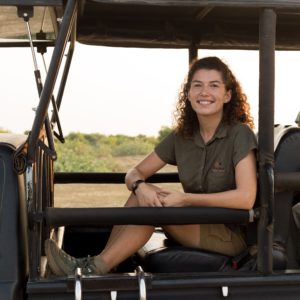 |
Grace SearsIntern Ranger at Wild Coast Lodge |
|---|

